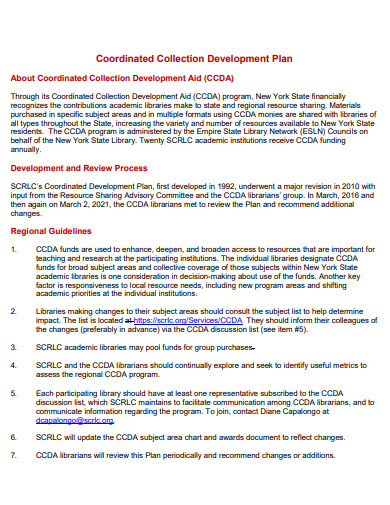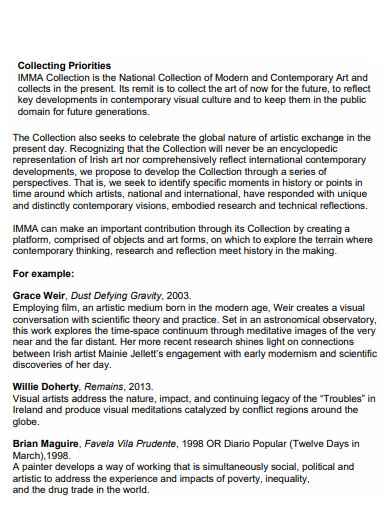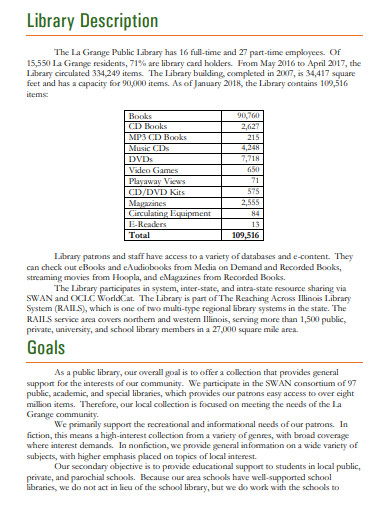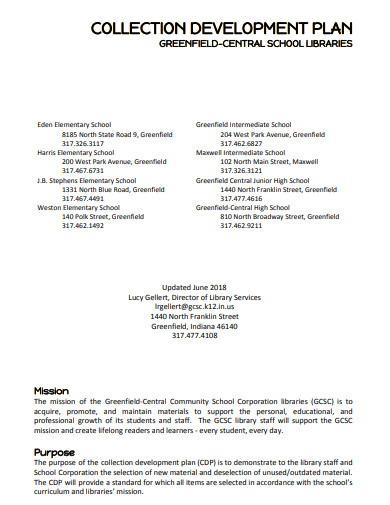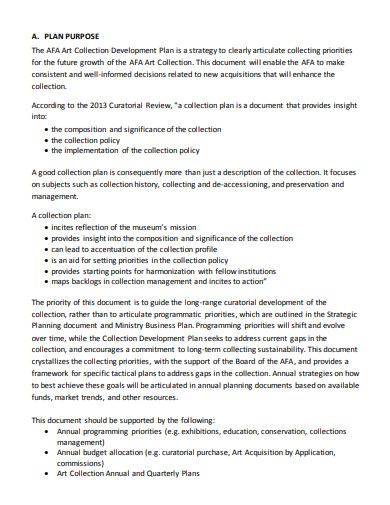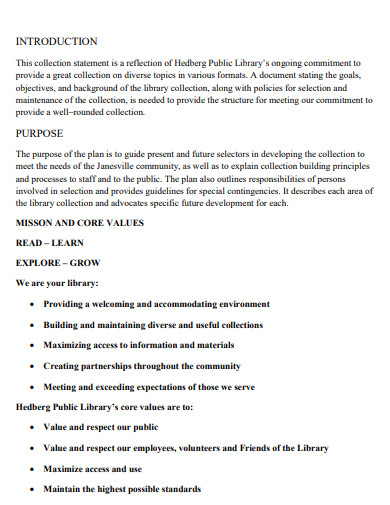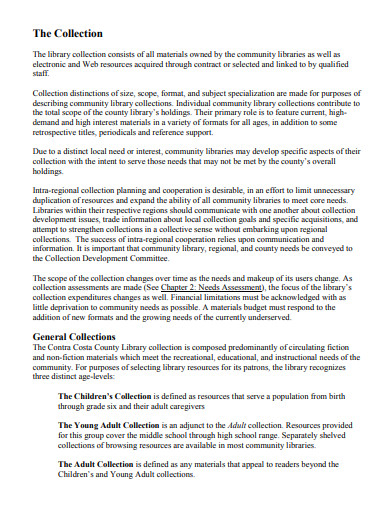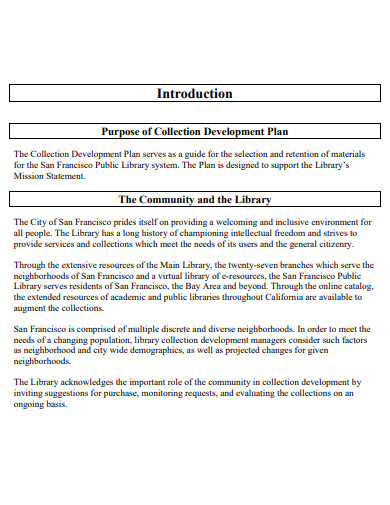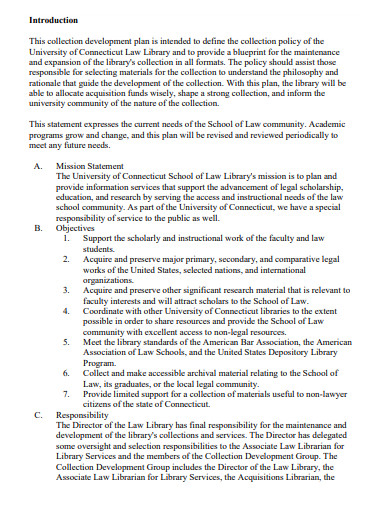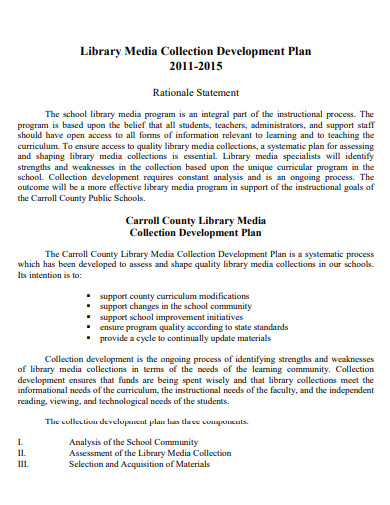Not a lot of people may realize it but libraries can be a complex facility to run due to classifying different types of written, visual, and audio materials for research and entertainment into different catalogs. Organizing these materials is no picnic and without a systematic plan to control it can produce headaches and confusion for library staff. That’s why a collection development plan is established to help the staff organize all their materials in an orderly manner. Read the article to know how to make a collection development plan.
10+ Collection Development Plan Samples
1. Collection Development Plan
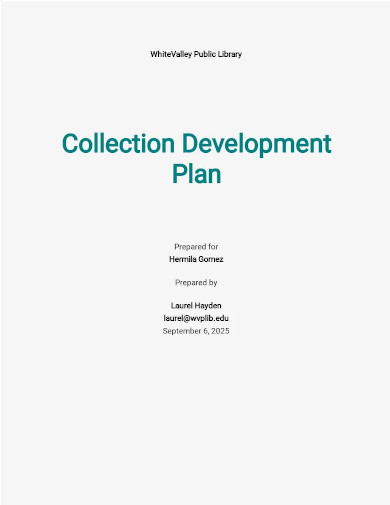
2. Coordinated Collection Development Plan
3. Strategic Collection Development Plan
4. Public Library Collection Development Plan
5. School Library Collection Development Plan
6. Sample Collection Development Plan
7. Sample library Collection Development Plan
8. Collection Development and Management Plan
9. Basic Collection Development Plan
10. Formal Collection Development Plan
11. Media Collection Development Plan
What is a Collection Development Plan?
The collection development plan is a process where all the activities under it relate to the development of library collections, such as books and other periodicals. Activities such as selection and deselection policy, needs assessments, and financial planning are activities that are part of the development plan. The development plan helps create a systematic process to organize library collections for the benefit of their stakeholders, such as the students, teachers, researchers, or any individual who goes to the library to look for a certain book.
How to Write a Collection Development Plan
1. Establish the Development Plan
If you plan to create the development plan or to revise the existing plan, you need to inform the governing body of your library to grant you permission and at the same time provide you support to create the development plan. You can ask for help from them to appoint a member and some staff members to help you create the plan.
2. Gather Information to Support Your Development Plan
Now that you’ve established that you’re making a development plan, it’s time to do your research. Study your library’s current long-range plan. Take note of them so you can compare and analyze how your plan differs or improves the current plan. If there are no policies or plans that were established, write down the ideas and decisions that you will put in your collection development.
3. Discuss the Changes to Authorized Personnel
Once you’ve done your research and drafted your ideas and format for the development plan, discuss the changes that you would like to make with the governing body. Make sure that the changes you want to make support the existing policies in your library to make sure the governing bodies go along with your plan. They usually give some suggestions on what you can also include in the plan so make sure to take note of all the suggestions and changes being discussed.
4. Write the Development Plan
After the discussion, it’s time to write the plan. Make sure your plan has the following elements: introduction of the plan, description of the library, its vision and mission statement, the goals and objectives of the development plan, the plans you want to act on based on the discussion and research you did, and a detailed action plan to work on your objectives. Make sure to write your development plan clearly and use simple vocabulary to make it easier to understand.
FAQs
What is the importance of a collection development plan?
The collection development exists for various reasons:
- To accumulate data that is important to stakeholders
- To recommend for funding
- To filter the selection and deselection policies in the library
- To get ready to face any issues regarding challenged books
- To use as part of an evaluation
What are the components of collection development?
The components of collection development are acquisition, weeding, and preservation.
What are the different types of materials are collected in the library?
The different types of materials collected in the library are books, reference materials, periodicals, audiovisual materials, electronic resources, recreational materials, and more.
After drafting the development plan, review it first and revise any errors that you’ve spotted. You will present the development plan to the governing body so they can review it as well and make some changes before they can approve it. Remember that once the collection development plan is approved, it must be implemented accordingly. The beauty of having a development plan that you established gives the governing body the opportunity to also modify the plan that reflects the library’s changes in the environment so the plan must be regularly updated. The plan also helps educates all the library staff and also the governing body on their roles and responsibilities of implementing the plan. To get started on making the development plan, download our free sample templates above to use as your guide!
Related Posts
FREE 9+ 30-Day Marketing Plan Samples in PDF | MS Word | Apple Pages | Google Docs
FREE 3+ Sales Team Action Plan Samples in PDF | MS Word | Apple Pages | Google Docs
Marketing Plan For Small Business Samples
FREE 7+ Fashion Business Plan Samples in PDF
FREE 10+ Sprint Planning Samples In MS Word | Google Docs | PDF
FREE 10+ Wedding Planning Samples in MS Word | Apple Pages | Powerpoint | PDF
FREE 9+ Monthly Study Planner Samples in PSD | Illustrator | InDesign | PDF
FREE 9+ Sample Curriculum Planning Templates in PDF | MS Word
FREE 10+ Teacher Development Plan Samples in MS Word | Google Docs | Apple Pages | PDF
FREE 10+ Basketball Practice Plan Samples in PDF
FREE 12+ School Business Plan Samples in PDF | MS Word | Apple Pages | Google Docs
FREE 7+ Client Strategic Plan Samples in PDF | MS Word
FREE 11+ Trucking Business Plan Templates in PDF | MS Word | Google Docs | Pages
FREE 7+ Small Hotel Business Plan Samples PDF | MS Word | Apple Pages | Google Docs
FREE 14+ Bakery Business Plans in MS Word | PDF | Google Docs | Pages

